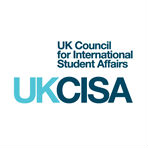Click to read the terms of our advice service.

UKCISA provide useful information about travelling in Europe.
Watch the Home Office's video on 'How to apply for a UK ETA.'
Tourist visas
Tourist visas
Tourist visas
A visa for holidays and other short trips can be referred to by different names in different countries. In the UK, this type of visa is called a ‘Standard Visitor visa’, while in Ireland it’s called a ‘short stay C visit’ visa and in European countries who are part of the Schengen Agreement, it’s called a Schengen visa.
Below is a summary of the most frequently asked questions which we hope you will find useful.
Schengen visa
As UK immigration specialists, we are unable to offer immigration advice for countries other than the UK, but we can provide limited information on travelling to the 26 Schengen countries in Europe.
A Schengen visa allows you to visit multiple European countries on a short visit, but you do need to plan a few months in advance, particularly if you'd like to go to Europe during the popular Easter or summer holidays!
UKCISA provide more guidance on Schengen visas and useful information about travelling in Europe.
The countries in the Schengen area are:
| Austria | Belgium | Czech Republic | Denmark | Estonia | Finland | France |
| Germany | Greece | Hungary | Iceland | Italy | Latvia | Liechtenstein |
| Lithuania | Luxembourg | Malta | The Netherlands | Norway | Poland | Portugal |
| Solvakia | Slovenia | Spain | Sweden | Switzerland |
Not all European countries are part of the Schengen agreement, and not all nationals need visas to visit some European countries.
Before booking any travel, you should check the embassy website to find out how long you can stay in that country and whether you need a visa. You can find a list of countries whose citizens must hold a Schengen short stay/travel visa when crossing the external borders of the Schengen area on the European Commission website
Processing times will vary, but ideally you should apply 4-6 weeks before you travel to give the embassy time to process your application. However, most embassies will require that you apply within 3 months before your travel date. An application cannot be lodged earlier than six months before the start of the intended journey.
If you are required to apply in person, you should book your appointment as early as possible, particularly if you plan to travel during busy holiday periods. Some embassies allow you to book appointments online while with others you may have to phone. Be aware that if you need to ring a premium rate phone line to make an appointment this is often quite expensive.
If you are planning to travel to more than one country you should apply to the embassy of the country where you will be spending the most time. If you are spending the same length of time in each country, you should apply to the embassy of the first country that you will be visiting.
If you're planning to travel into the Schengen area during a three-month period, you can choose to apply for a multiple entry visa. You might be required to show evidence of all the travel arrangements and bookings when you apply.
Here are some links to the most popular destinations:
|
Country |
Where to apply |
|
France |
|
|
Germany |
|
|
Italy |
|
|
Spain |
Application form
You can download a Schengen visa application form from the embassy website, or nominated visa application company website, for example TLS. Be sure to download a new form and guidance from the correct embassy every time you apply.
Each European embassy has its own list of required documents so it is very important that you refer to the embassy website directly. We recommend you make copies of all documents submitted, and carry them with you when you travel.
- Passport with at least two empty pages containing UK visa or BRP card (you will usually need 3-6 months remaining on both your visa and your passport)
- Recent photographs
- Proof of sufficient funds to pay for your trip (bank statements)
- Medical insurance to cover your entire trip (check minimum coverage required)
- Purpose of trip (e.g. itinerary, invitation letter, conference programme, etc)
- Evidence of accommodation bookings for all of your stay in the Schengen countries
- Travel details (airline reservation/Eurostar booking, etc)
- Student status letter (you can generate this from the SRS section in iExeter)
Some embassies require a ‘no objection’ letter which includes various details that are not included on a student status letter. If this is the case, please send the link to the embassy website where the ‘no objection’ letter is listed as a requirement to visaadvice@exeter.ac.uk
A Schengen visa is not appropriate if you wish to remain in the Schengen state for more than 90 days (for instance on an Erasmus programme).
It is important that you stick to your proposed itinerary as closely as possible as you may be refused a Schengen visa in the future if you have spent much longer in one country than you had originally stated.
If you are granted a single entry visa, you must not re-enter the Schengen state once you have left it, even if the visa has not yet expired.
UK Standard Visitor visa
A Visitor visa is usually 6 months long and is designed to allow a person to come to the UK for a short trip. For example, your friends and family may need to apply for this visa if they want to visit you for a holiday or to attend your graduation ceremony.
You may also need to apply for a Visitor visa to attend your graduation, if your ceremony takes place after your Student visa has expired and you have no other immigration status.
Studying in the UK? The information on this page relates to applying for a Visitor visa to travel to the UK for a short trip as a tourist or holidaymaker, not for the purposes of studying a course. If you plan to study for more than 30 days, please refer to the dedicated section of our website here.
Completed your studies earlier than planned? Some students may have completed their course early and left the UK. In this case, their Student visa may not be valid anymore, see here for details. If you think you may be affected by this, contact us before travelling and we will advise you on your individual situation. If your visa is no longer valid, you will need to apply for a Visitor visa to re-enter the UK and attend graduation.
The below information is an overview, for full details see the Gov.uk website.
Applying for a Visitor visa in advance of travelling
If you are from one of the countries on the Visa National list, you are considered a 'visa national'. You must apply for and be granted your Visitor visa before you travel to the UK.
If you are not from one of the countries on the Visa National list, you are considered a 'non-visa national' and this means you can enter the UK as a visitor without applying for a visa in advance of travelling (see section below).
The earliest you can apply is 3 months before you travel. You start by submitting your application form online (except in North Korea) and paying an application fee of £115. There are additional fees for fast track services.
Once your application form has been submitted, you will usually need to attend an appointment at a UK Visa Application Centre to submit your original documents and enrol your biometric information. It will then take about three weeks for your visa application to be processed, depending on where you are applying. For current processing times please see the Home Office website.
Entering as a Visitor on arrival (non-visa nationals only)
This option is only available to ‘non-visa nationals’ whose nationalities are not listed on the visa nationals list. This includes EU/EEA and Swiss nationals who do not have a status under the EU Settlement Scheme.
If your nationality is on that list, you must apply for and be granted your Visitor visa before you travel to the UK.
As a 'non-visa national' you still need imimgration permission to be in the UK and will be entering as a visitor when you pass through border control. You may be asked questions at the border about your eligibility and the activities you plan to do. You do not need to make any sort of visa application in advance.
Before you travel:
Nationals of Bahrain, Jordan, Kuwait, Oman, Qatar, Saudi Arabia, United Arab Emirates will need to apply for Electronic Travel Authorisation (ETA) before travelling. More nationalities will be added in 2024/2025.
At the border (airport, ferry, train):
If your nationality qualifies to enter via an eGate, you can join that queue and will not see an Immigration Officer to present your documents. You will automatically be classed as entering the UK as a Visitor. Some travellers who go through the eGate may be asked to see a UK Border Force Officer for spot checks so you should make sure you have all of the below documents ready anyway.
If your nationality does not allow you to enter via the eGate or these are not available, you will need to join the queue to see a UK Border Force Officer. On reaching the UK Border Force Officer, you will need to present the documents listed below. Your passport will be stamped with a date stamp.
Here’s a summary of the documents required; please see Standard Visitor visa: Documents you'll need and Visiting the UK: guide to supporting documents for further details.
If any documents are not in English they must be accompanied by an official translation, and there are specific requirements this translation must meet. Please see here for details.
Friends or family who are visiting you in the UK will need:
- A passport: this should be valid for the whole of the stay in the UK and contain a blank page for the visa.
- Evidence that they are able to support themselves and any dependants for the duration of the trip and can pay for the return journey and any other costs relating to their visit. This could be in the form of bank statements or building society books.
- Evidence of links to their home country along with evidence of intention to return. For example, a letter from an employer confirming employment details (start date of employment, salary, role, company contact details), ownership of property or rental agreement in the home country, evidence of retirement etc. These are just a few examples, if the person is from with a high visa refusal rate country, you can contact our team for specific advice.
- There are additional requirements for children under the age of 18; see here for details.
- Proof of your finances if you are providing financial support for their visit.
- An invitation letter written by you (the student). See below for details about what this letter should include.
- A copy of your student status letter (this can be downloaded from SRS in iExeter), if you have not yet completed your studies.
- A copy of your graduation invitation email, if your friends/family are visiting to attend your graduation ceremony.
- A copy of your passport and visa.
If you are applying for the Visitor visa to attend your own graduation, you will need:
- Your passport: the passport should be valid for the whole of the stay in the UK and contain a blank page for the visa.
- To provide evidence that you are able to support yourself and any dependants for the duration of your trip and are able to return for your return journey and any other costs relating to your visit.
- Your graduation invitation email, or a graduation letter (this can be requested from SID).
You’ll need to write an invitation letter for your guests outlining their relationship to you and the purpose of their visit. You should address the letter to the ‘Visitor visa casework team’ and include these details:
- Your visitor’s full name
- Your relationship to them (parent, friend, etc.)
- The reason for their visit (graduation, holiday, etc.)
- Their planned arrival and departure dates
- Where they intend to stay; if they plan to stay with you, give your full address
- Your own immigration status (for example, Student/Tier 4 visa and the end date of your visa).
Visitors:
- Are not allowed to work.
- Can undertake up to 30 days of recreational study (unless they are visiting specifically for study purposes, see here for further details).
- Are not entitled to free medical treatment on the National Health Service.
- Must leave the UK at the end of the 6 months.
- Cannot switch from a Visitor visa to any other category (for example, your visitor cannot then extend their stay in the UK as your Dependant).
Republic of Ireland short stay visa
Your UK visa does not give you permission to travel to the Republic of Ireland. Before booking any travel, you should check the Irish Embassy website to find out whether you need a visa ahead of travelling. If you do, you will need to apply for a Short stay C visit tourist visa for a trip of less than 90 days. Please read the Embassy website for details.



